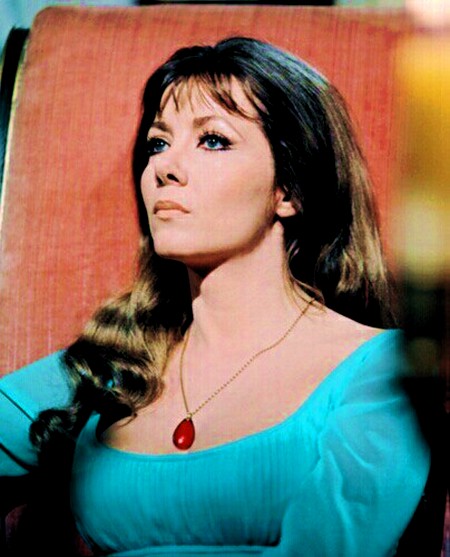Ingrid Pitt, known affectionately as Britain’s Horror Queen, passed away at the age of 73, leaving behind a legacy that resonates with horror aficionados and cinephiles alike. Her illustrious career spanned numerous films, predominantly within the horror genre, where she carved out an indelible mark as a leading lady. Although she was often relegated to cult status, her contributions to film transcend mere celluloid; they evoke a fascinating dialogue about the cultural undercurrents of fear, desire, and the sublime.
Pitt’s rise to fame occurred during the golden age of British horror cinema in the 1970s, particularly through her standout performances in iconic films such as “The Vampire Lovers,” “The House That Dripped Blood,” and “Countess Dracula.” These films not only showcased her acting prowess but also her remarkable ability to meld vulnerability with a fierce, often predatory sexuality. This compelling dichotomy resonated through generations, appealing to audiences drawn to both her haunting beauty and potent performances that captured the very essence of horror.
The fascination with Pitt can be attributed to more than just her captivating on-screen presence; it taps into a broader cultural evolution. The 1970s were a pivotal period marked by societal upheaval and shifting paradigms in gender roles. Female characters in horror began to challenge traditional archetypes, and Pitt emerged as a symbol of that transformative era. Her portrayals often contained an undercurrent of empowerment, showcasing women who could assert dominance, often in a world rife with patriarchal constraints. This nuanced representation expanded the narrative scope of horror, inviting audiences to re-examine the themes of power and vulnerability.
Pitt’s influence traverses generations, inspiring contemporary filmmakers who seek to revive the horror genre’s golden age while incorporating modern sensibilities. Her characters are often complex; they embody fear and allure in equal measure. She challenges viewers to confront their own fears and desires, a duality that provokes critical examination of one’s moral compass. This psychological depth is a testament to Pitt’s talents and demonstrates why her work continues to resonate with new audiences.
Ingrid Pitt’s passing marks the end of an era, yet her legacy as Britain’s Horror Queen endures. Through her remarkable filmography, she invites contemplation about the allure of horror—the way it reflects our deepest anxieties while simultaneously serving as a means of catharsis. The fascination with her work lies in its ability to transcend mere entertainment, evolving into a remarkable discourse on identity, sexuality, and the human condition. As the shadows of her films linger in the minds of fans, they remind us that horror, in its most compelling form, is not just about fear—it’s about understanding the darker facets of our existence.
